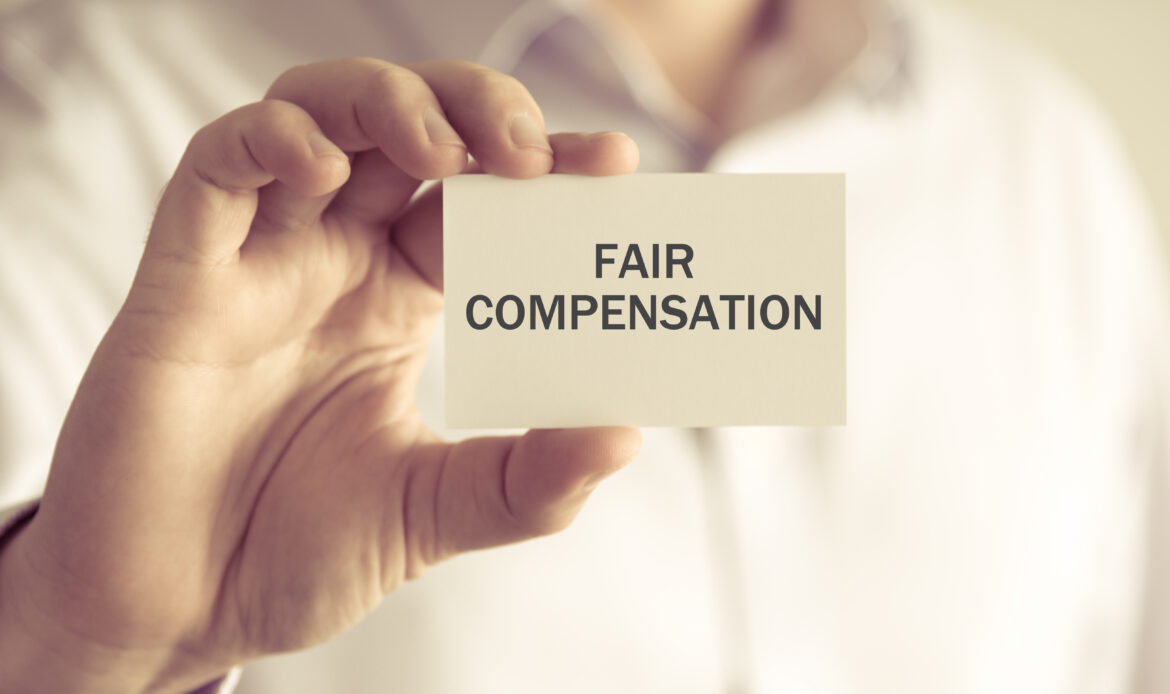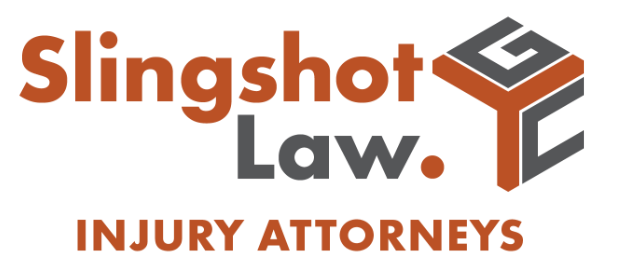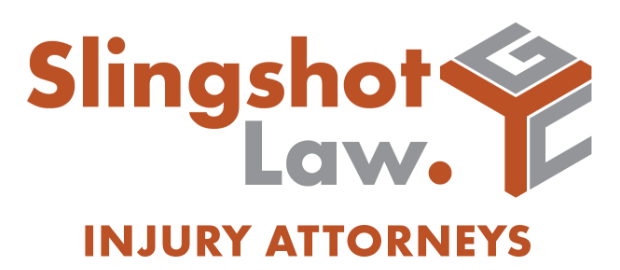Car accident settlements can feel overwhelming. Insurance forms, negotiations, and financial decisions can leave anyone unsure of their next move. Understanding how the process works enables you to make informed choices and protect your long-term interests. Every detail matters, and careful preparation can make the difference in the outcome of your claim.
Our Austin, TX, car accident lawyers at Slingshot Law guide clients through every step with personalized care and thorough investigation. We fight for your rights, handle all the legal complexities, and work to secure the compensation you deserve.
Schedule a Free Initial Consultation
Key Takeaways: The Car Accident Settlement Process
- Settlements are agreements where you receive payment in exchange for releasing claims against the at-fault party.
- Most car accident cases settle before trial because settlements provide certainty while trials involve risk for both sides.
- Insurance companies make initial offers far below what your case is worth, expecting you to accept inadequate compensation.
- Your car accident lawyer negotiates with insurance companies to increase settlement offers substantially.
- Reach maximum medical improvement before settling to ensure you account for all damages.
- Once you accept a settlement and sign a release, you cannot seek additional compensation later.
- Working with a car accident lawyer significantly increases your settlement amount compared to handling claims yourself.
What a Settlement Actually Means
A settlement is a contract. You agree to accept a specific payment in exchange for releasing all claims against the at-fault driver and their insurance company. This release means you give up your right to sue them for the accident.
Settlements provide certainty. You know exactly what you’ll receive and when it will arrive. Trials are unpredictable. Juries might award more than the settlement offer, but they might also award less or nothing at all. Settlements eliminate this uncertainty.
Most settlements involve a single lump sum payment. The insurance company writes one check covering all your damages. You receive this money within weeks of signing the settlement agreement.
Settlements are final. Once you sign the release and accept payment, you can’t change your mind. If your condition worsens later, or you discover additional injuries, you can’t come back for more money. This finality makes timing crucial.
The Settlement Process Starts With Medical Treatment
You cannot settle your case until you have completed treatment or reached maximum medical improvement. This means either fully recovering or reaching a point where doctors can assess the extent of any permanent damage. Settling earlier risks, accepting compensation without complete information. Medical treatment forms the foundation of your claim.

Every doctor visit, therapy session, diagnostic test, and medical bill documents your injuries and their severity, supporting your compensation demand. Following all treatment recommendations protects your claim because insurance companies use gaps in care to argue your injuries were not serious. Some injuries take months to fully reveal, such as back injuries requiring surgery or persistent concussion symptoms. Your car accident lawyer ensures you wait until your full damages are clear.
How Insurance Companies Make Settlement Offers
Initial contact from the insurance company happens quickly. Adjusters call within days or weeks of your accident, acting friendly and concerned. They request statements and information, but this early contact is strategic, not kind. Recorded statements are traps.
Adjusters ask questions designed to minimize your injuries or assign partial fault and later use your words against you. Never give recorded statements without speaking to your car accident lawyer first.
The following documents are requested: medical records, employment records, and tax returns. Some are legitimate; others seek information to use against you. Low initial offers come next and are almost always inadequate. Insurance companies base their offers on their interests, not yours.
The Role Your Lawyer Plays in Negotiations
Demand letters begin formal negotiations. Your car accident lawyer sends a detailed document presenting your case fully. This letter includes accident facts proving liability, medical records documenting injuries, bills showing financial losses, and a specific compensation demand.
Demand letters are powerful tools that present your case professionally and demonstrate you have legal representation. Counteroffers follow, with the insurance company responding with a lower amount.
This starts back-and-forth negotiations where each side supports its position. Your lawyer guides the process, knowing typical case values and when to push or accept. Multiple rounds of negotiation are common, and patience usually produces better settlements than accepting early offers.
What Goes Into Calculating Settlement Value
Medical expenses form the foundation of your claim. Every dollar spent on emergency care, hospital stays, surgery, doctor visits, therapy, medications, and medical devices is deserving of compensation.
Include any future medical needs as well. Lost earnings cover income missed during recovery, including paychecks, vacation days, and bonuses, with documentation from your employer supporting these losses. Lost earning capacity applies when injuries reduce your ability to work, as assessed by vocationalists.
Property damage includes the costs of vehicle repair or replacement. Pain and suffering account for physical pain, emotional distress, and reduced quality of life. Permanent disability increases the settlement value, with life care planners and vocational professionals calculating long-term costs for ongoing care and lost earnings.
Why Cases Settle Instead of Going to Trial
Trials involve risk for everyone. Juries are unpredictable and may award more, less, or nothing at all. This uncertainty motivates settlements. Trials are also expensive. Attorney fees rise, expert witness costs escalate, and court fees accumulate.
Time is another factor. Obtaining a trial date can take a year or more, and the trial itself typically lasts several days or weeks. Appeals can extend the process further. Settlements provide faster resolution and give both sides control.
You decide whether to accept an offer, and the insurance company decides how much to offer. Some cases still go to trial when fair settlements are unavailable. Your car accident lawyer’s willingness to proceed gives leverage in negotiations.
The Settlement Agreement and Release
Settlement agreements are legal contracts specifying the payment amount, timing, and the claims you are releasing. These agreements must be in writing to be enforceable.
The release gives up your right to sue. In exchange for the settlement payment, you agree not to pursue any further claims related to the accident, including against the at-fault driver, their insurance company, and other potentially liable parties.
Pay attention to release language, as broad releases can block claims you may not be aware of. Confidentiality clauses may also limit public discussion of the terms. Minor settlements also require court approval, and structured settlements involve periodic payments. Your car accident lawyer reviews all terms to protect your interests.
How Settlement Money Gets Distributed
You must pay medical liens first. Hospitals, doctors, and health insurance companies providing treatment often have liens on your settlement, giving them the right to repayment.
Health insurance companies may have subrogation rights to recover money they paid for accident-related treatment, but your car accident lawyer can often negotiate these liens down. Attorney fees are taken from the settlement, usually as a pre-agreed percentage, so you pay nothing unless you win.
Case costs, including medical records, accident reports, expert witnesses, and court fees, are reimbursed first. You receive the remainder, with a detailed breakdown showing every dollar. Personal injury settlements for physical injuries are generally not taxable; however, portions for lost income or punitive damages may be taxable.
Common Settlement Mistakes People Make
Accepting the first offer rarely makes sense. Insurance companies rely on people taking inadequate initial offers out of desperation or ignorance. These offers are usually far below what they will ultimately pay.
Settling too quickly leaves money on the table. You cannot know your case’s true value until you finish treatment or understand permanent limitations. Giving recorded statements without legal advice can hurt your claim, as adjusters use your words against you.
Signing releases without careful review is a risky practice. Handling claims without a lawyer often costs you money, since represented claimants recover substantially more. Posting on social media can harm your case, as insurers may use photos and posts to downplay your injuries.
Special Situations That Affect Settlements
Hit-and-run accidents require a different approach. When the at-fault driver flees, your claim goes through your own insurance under uninsured motorist coverage, and your insurer may fight aggressively to pay less.
Multiple vehicle accidents complicate liability, as each insurance company tries to shift blame. Your car accident lawyer pursues claims against all responsible parties to maximize recovery.
Accidents involving commercial vehicles often involve larger insurance policies, though the cases are more complex. Government entities have special rules for filing a notice of claim. Passenger claims are simpler, as passengers are rarely at fault and may pursue multiple sources of compensation.
How Long Does the Settlement Process Take
Simple cases with minor injuries often settle within months when liability is clear, you document your injuries, and the insurer acts reasonably. Complex cases take longer, especially with serious injuries, permanent disabilities, or disputed liability, and you cannot settle
until reaching maximum medical improvement, which may take a year or more. Insurance companies employ tactics to slow the process, including requesting extensive documentation, delaying responses, and prolonging negotiations to pressure victims into accepting low settlements.
Filing a lawsuit can extend timelines but may also increase settlements, as insurers tend to take claims more seriously. Most lawsuits still settle before trial through negotiations, mediation, or settlement conferences, with actual trials occurring in only a small percentage of cases.
When to Accept a Settlement Offer
Fair compensation covers all your damages, including medical bills, lost earnings, future medical needs, lost earning capacity, and pain and suffering. Your car accident lawyer helps determine whether offers are truly fair.
You have reached maximum medical improvement, allowing doctors to assess permanent limitations and predict future care needs. Settlement offers should also compare favorably to potential trial outcomes.
Your lawyer evaluates the case’s strength and probable jury verdicts, ensuring the offer aligns with the likely results. Settlements offer certainty over trial risk, since even strong cases can lose. Financial pressures should not force a decision, and your lawyer can help address them so you avoid settling prematurely and ensure compensation reflects the full value of your claim.
How Slingshot Law Maximizes Your Settlement
At Slingshot Law, our work is personal. We start by investigating every detail of your case. Police reports, witness statements, medical records, and employment documents all contribute to building a stronger claim.
We carefully review medical records and consult with doctors when necessary to ensure a thorough understanding of your injuries. Our clients often tell us how our clear explanations made a stressful time manageable.
Professional demand letters present your case clearly and firmly, showing insurance companies that we do not settle for less than you deserve. With a track record of successful trials, local knowledge, and real commitment to the community, we secure the settlement you need to move forward.
Your Path to Fair Compensation
Car accidents can upend your life with medical bills, lost earnings, and emotional stress. Insurance companies often try to minimize payouts, but you do not have to face them alone. You need a skilled advocate who understands the law, insurance tactics, and how to fight for full compensation. As a trusted personal injury lawyer in Austin, TX, we’re here to protect your rights.

Our lawyers work on contingency. You pay nothing unless we win. Call our office at (866)647-1311. Let us handle the negotiations while you focus on healing.
Settlement Process Questions and Answers
Should I accept the insurance company’s settlement offer?
Not without consulting a car accident lawyer first. Initial offers are almost always far below what cases are worth. Your lawyer evaluates whether the offers fairly compensate you for all damages.
Can I negotiate with the insurance company myself?
You can, but you’ll likely settle for far less than with legal representation. Insurance adjusters are trained negotiators working to save their company money. Your lawyer levels the playing field.
How long does it take to receive settlement money?
Once you sign the settlement agreement and release, payment typically arrives within a few weeks. Your lawyer receives the check, pays any liens or costs, and sends you the remainder.
What if I need money before my case settles?
Your lawyer can explore options, such as medical liens, that allow for treatment without upfront payment. However, be cautious about lawsuit funding companies that charge high interest rates.
Can I reopen my case if my injuries get worse after settling?
No. Settlements are final. Once you sign the release and accept payment, you give up all rights to pursue additional compensation. This is why timing your settlement correctly is so important.


